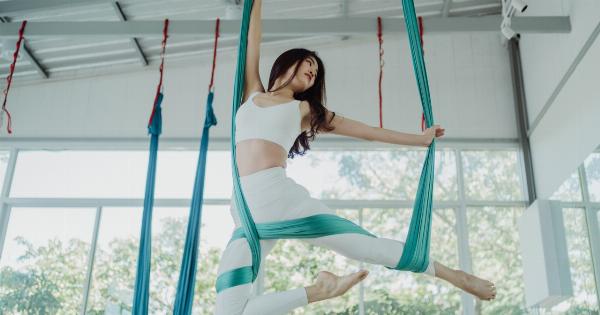Gymnastics is a physically demanding sport that requires strength, flexibility, coordination, and balance.
While it offers numerous benefits to individuals of all ages, there are certain groups of people who should not participate in gymnastics due to various reasons. It is important to consider these factors to ensure the safety and well-being of individuals when deciding whether or not to engage in this sport.
1. Individuals with Certain Medical Conditions
Gymnastics involves rigorous physical activity, which may not be suitable for individuals with certain medical conditions.
People with heart conditions, respiratory disorders, or chronic illnesses should consult with their healthcare provider before participating in gymnastics. These medical conditions can pose a risk during intense physical exertion, making it important to assess their fitness level and capabilities.
2. Individuals with Musculoskeletal Injuries
Injuries such as fractures, sprains, or strains can significantly limit a person’s ability to engage in gymnastics. It is crucial to allow sufficient time for injuries to heal completely before resuming gymnastics activities.
Participating in gymnastics during the recovery phase can exacerbate the injury or cause new injuries, leading to a prolonged healing process.
3. Individuals with Balance or Coordination Issues
Gymnastics requires precise coordination, balance, and spatial awareness. Individuals who struggle with these aspects may find it challenging to safely participate in gymnastics.
Lack of coordination or balance can increase the risk of falls and injuries during various gymnastics routines and movements, making it unsuitable for individuals with these issues.
4. Pregnant Women
Pregnant women should avoid participating in gymnastics due to the potential risks involved.
Pregnancy causes several physiological changes in a woman’s body, such as a shift in the center of gravity, loosening of ligaments, and increased joint flexibility. These changes can increase the likelihood of falls or injuries, posing a threat to both the mother and the unborn child.
5. Older Adults with Limited Mobility
Gymnastics often involves intense movements and high impact exercises that may not be suitable for older adults with limited mobility. As people age, joint flexibility and bone density decrease, making them more prone to injuries.
Participating in gymnastics without proper training and modifications may pose a significant risk to older individuals, leading to fractures or other injuries.
6. Individuals with Eating Disorders
Gymnastics often emphasizes a certain body type and weight, which can contribute to the development or exacerbation of eating disorders.
Individuals with anorexia nervosa, bulimia nervosa, or other eating disorders may experience significant physical and psychological consequences if they engage in gymnastics. It is crucial to prioritize mental and physical well-being before considering participation in this sport.
7. Individuals with Vision Impairments
Gymnastics often relies on visual cues and depth perception, making it challenging for individuals with vision impairments to safely participate. The sport involves precise movements, flips, and rotations, which require accurate spatial awareness.
Individuals with vision impairments may find it difficult to execute gymnastics routines properly, increasing the risk of accidents or injuries.
8. Individuals with Hearing Impairments
While gymnastics primarily relies on visual cues, auditory instructions and communication are also integral parts of training and competitions.
Individuals with hearing impairments may face difficulties in following instructions or communicating with coaches and teammates. This can negatively impact their overall participation and potentially compromise their safety.
9. Individuals with Severe Allergies
Some gymnastics facilities use chalk as a grip enhancer, and others may have airborne particles like dust or pollen.
Individuals with severe allergies, especially respiratory or skin allergies, may find it challenging to participate in gymnastics due to potential allergic reactions. Allergic reactions can hinder performance and compromise the individual’s overall comfort and safety.
10. Individuals with Psychological or Emotional Limitations
Gymnastics can be mentally and emotionally demanding, often requiring a high level of focus, perseverance, and mental strength.
Individuals with psychological or emotional limitations, such as severe anxiety, panic disorders, or trauma, may find it difficult to cope with the pressures and competitive nature of gymnastics. It is important to prioritize mental well-being when considering participation in this sport.
Conclusion
While gymnastics offers a wide range of physical and mental benefits, it is essential to consider certain factors before participating in this sport.
Individuals with specific medical conditions, musculoskeletal injuries, balance or coordination issues, pregnancy, limited mobility, eating disorders, vision impairments, hearing impairments, severe allergies, or psychological or emotional limitations should be cautious and consult with medical professionals before engaging in gymnastics. Ensuring the safety and well-being of all participants is crucial for a positive and rewarding gymnastics experience.































